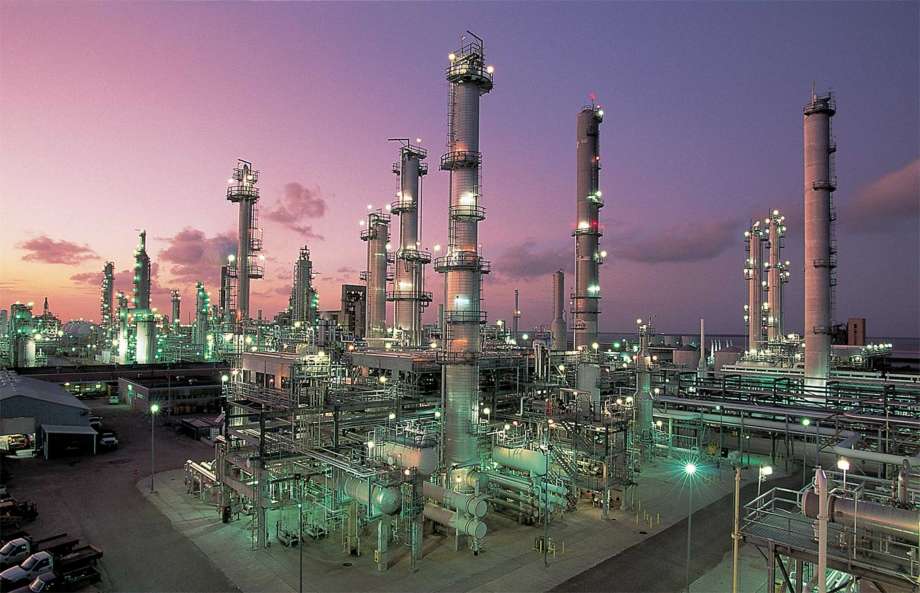
Lagos — As Namibia strives for first oil production, Halliburton has officially opened operational bases in Windhoek, Walvis Bay, Swakopmund and Lüderitz to support offshore drilling. Multinational oilfield services corporation Halliburton officially opened its operational bases in Namibia with a ceremony spanning two days.
Aimed at supporting offshore oil and gas projects, the operational bases are strategically located in close proximity to port infrastructure. The bases opened by Namibia’s Minister of Energy and Mines, Tom Alweendo and Halliburton Area Vice President Antoine Berel, are set to boost local content in Namibia ahead of first oil production in the Orange Basin.
The African Energy Chamber, AEC, commends the proactive drive by Halliburton to establish a presence in Namibia, one of the world’s biggest emerging oil players. With its newly established operational bases, the company is not only positioning itself at the forefront of the country’s oil and gas industry, but also setting the stage for improved knowledge sharing and collaboration across the hydrocarbon service and logistics industries.
The operational base in Walvis Bay represents a $10 million investment and features a warehouse, storage facilities for horizontal tanks to store and process synthetic and water-based drilling fluids, and a storage facility for dry materials. Additionally, the facility will feature a laboratory unit, which will provide engineering and support services for offshore operations.
The plant will employ 200 Namibians, 50% of which are women, with expectations that employment opportunities will more than double. Additionally, Halliburton has partnered with the University of Namibia to develop skills in the industry.
To date, Halliburton has recorded a 300% increase in local vendor registration with the anticipated opening of the operational bases. A total of 750 local companies have responded to tenders, with local expenditure significantly increasing. With these facilities, the Walvis Bay base will provide drilling and completion fluids for use across offshore oil rigs, thereby supporting the development of existing and upcoming offshore projects.
Speaking during the opening in Windhoek, Minister Alweendo said that the country’s oil and gas resources can transform the economy into something more dynamic.
He said: “We need to make sure that the resources we have will have an impact on our economy and our people. Prospective Namibian entrepreneurs want to make sure they can play a role in this sector and that Halliburton can play a role in facilitating their participation.
“Therefore, we need to figure out how we improve the skills of Namibians. We need to make sure that, when it comes to quality, it should not be to curtail or stop the provision of services by Namibian entrepreneurs, but rather, to help them improve their services.”
Namibia remains on track for first oil production by 2029, with energy majors Shell and TotalEnergies targeting FID for the Venus-1X (PEL 56) and Graff-1X (PEL 39) discoveries made in 2022 by next year.
The development of these finds will not only position the country as a deepwater oil producer but create new opportunities for further offshore field development.
Concurrently, oil and gas company Galp Energia is accelerating the development of the Mopane field. Situated in PEL 83, the field could contain as much as 10 billion barrels of oil equivalent.
Speaking at African Energy Week: Invest in African Energy 2024, Maggy Shino, Petroleum Commissioner at the Ministry of Mines and Energy, said while first oil is projected for 2029, the development of the Mopane field could get the country to first oil quicker. This not only creates opportunities for Namibia to leverage domestic resources to fuel economic growth but stimulates the development of a new petroleum industry in the country.
According to NJ Ayuk, Executive Chairman of the AEC, the oil and gas industry would not be in the position that it is today without the tireless efforts of companies like Halliburton and the oil and gas industry working hand in hand with the Ministry and Namcor.
“Oil and gas are going to fuel Namibia’s economic growth and prosperity by expanding trade, creating more jobs and fostering innovation. Halliburton brings to Namibia some of the best technology that will encourage exploration in a sustainable fashion,” he said.
Halliburton has already been expanding its presence in the country. The company inked a deep-water integrated multi-well contract in April 2024 with Energy Company Rhino Resources and Azule Energy. The contract will see Halliburton provide complete solutions for the construction of exploration and appraisal wells.
Rhino Resources operates Block 2914A in PEL 85, situated in offshore Orange Basin -and plans to begin drilling in the next four months. With the operational bases, Halliburton is gearing up to further support projects such as this. In addition to oilfield services, the bases will drive skills development and knowledge-transfer, therefore supporting capacity building across the country.
“Halliburton should be proud of its accomplishment in hiring and training Africans. We hope other companies follow the example of Halliburton and invest in Namibians. The time for talking is over. The oil industry must step up on local content and hire, train and promote Namibians,” Ayuk added.



